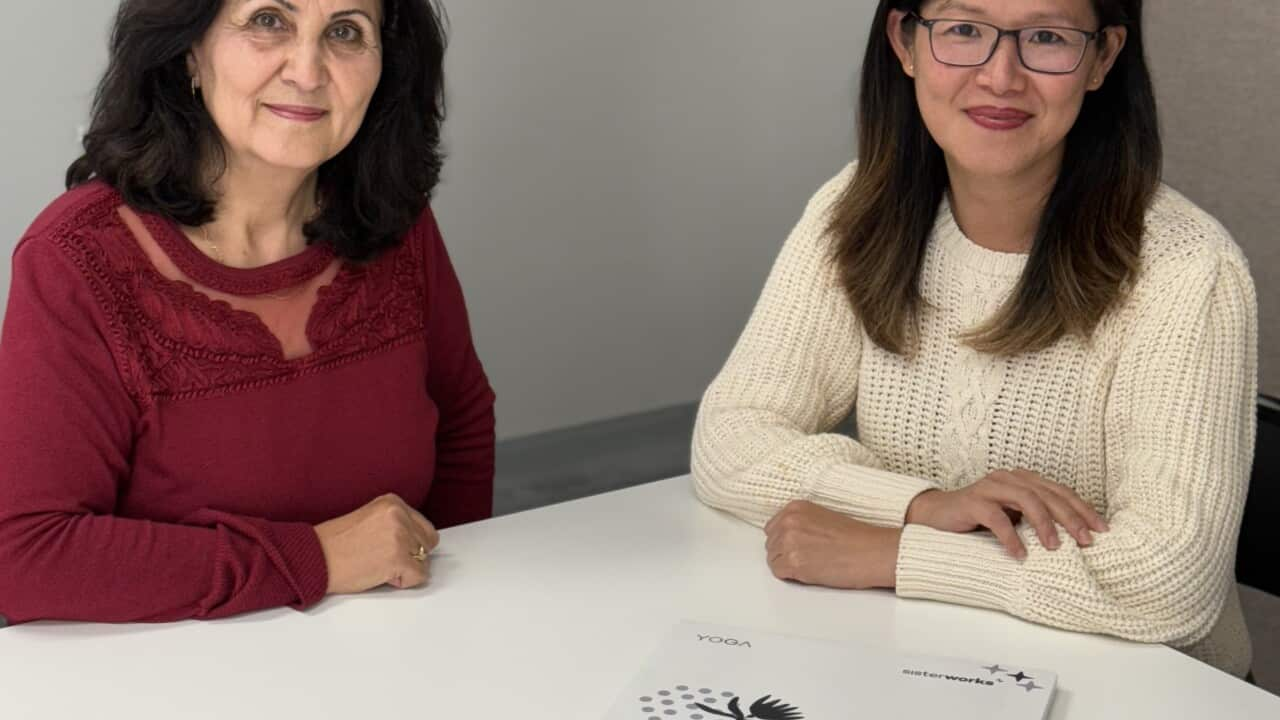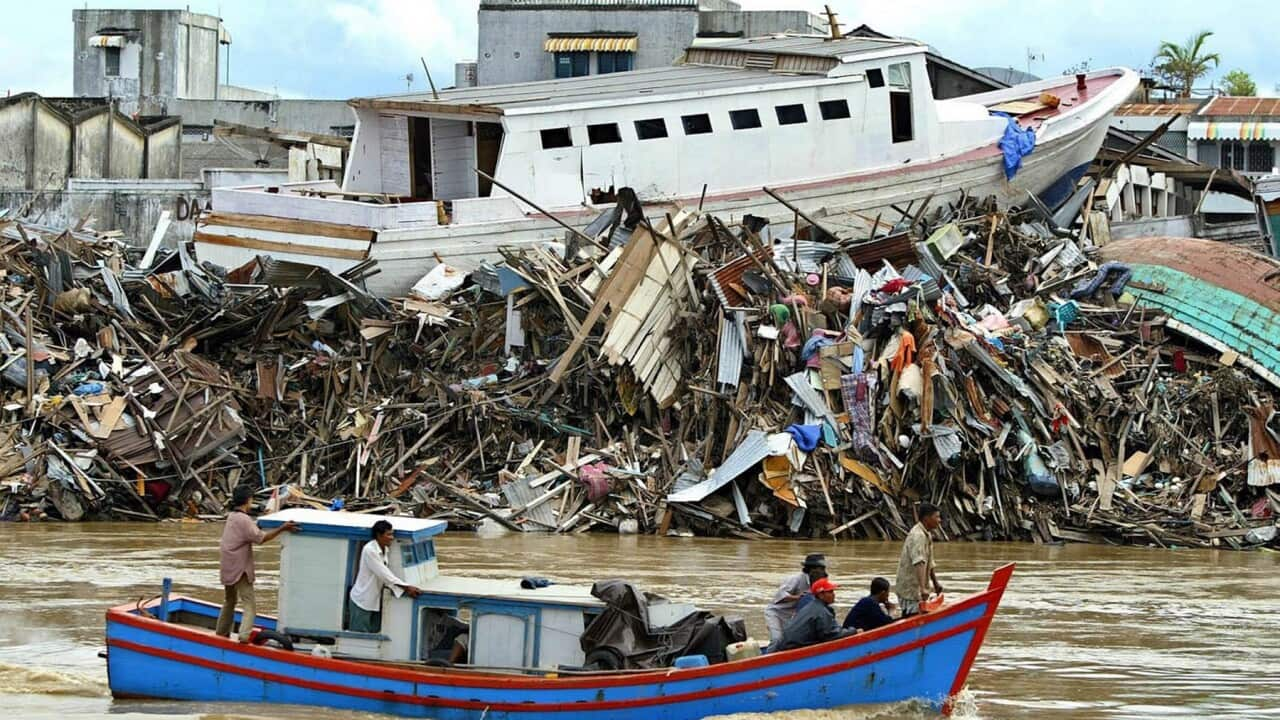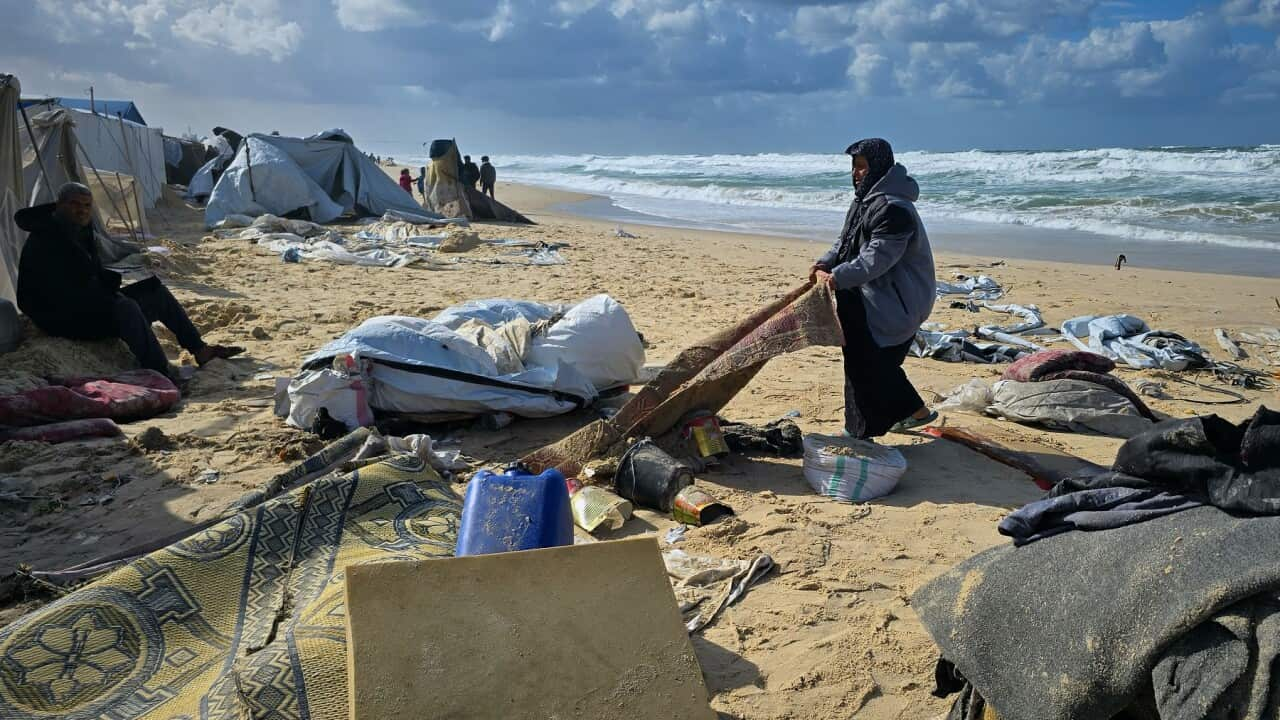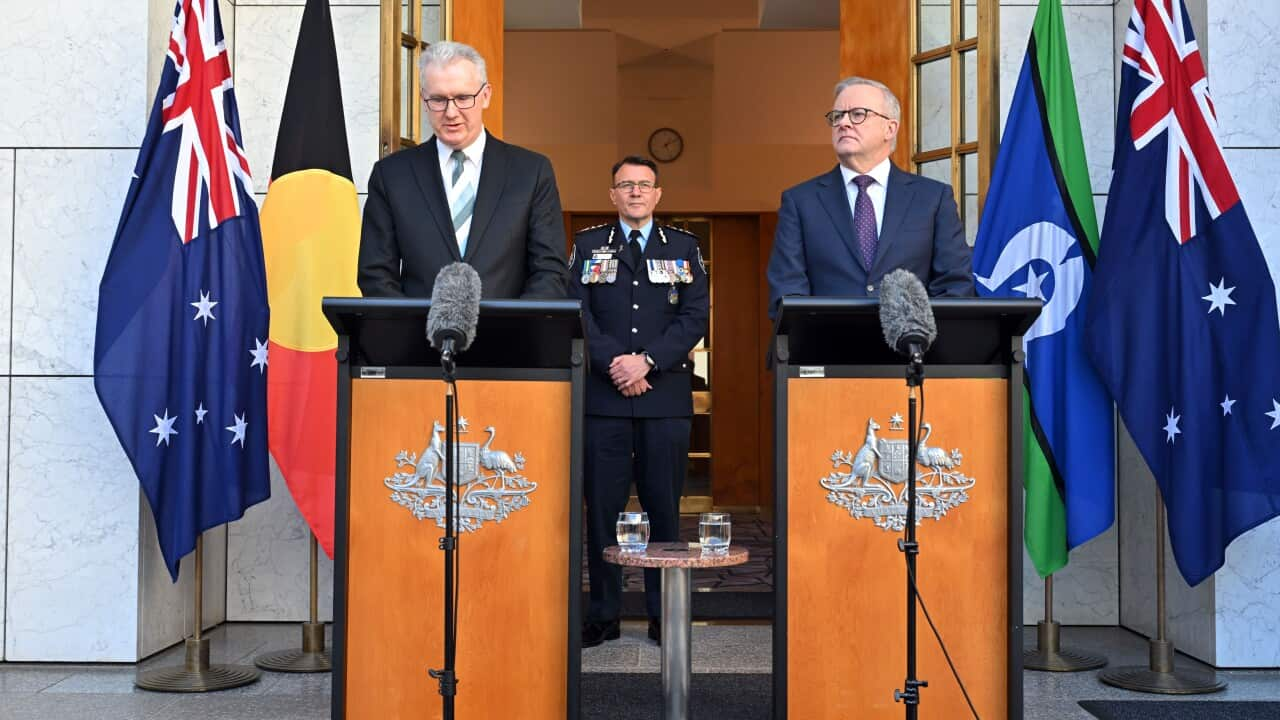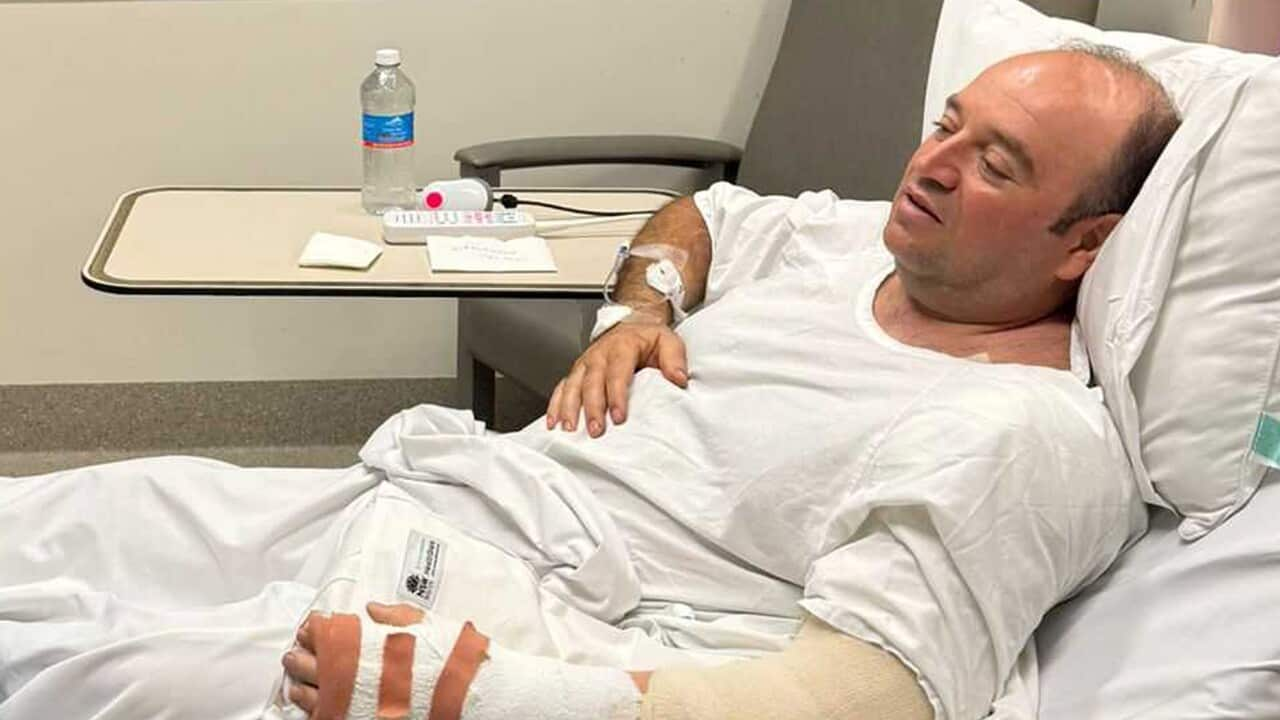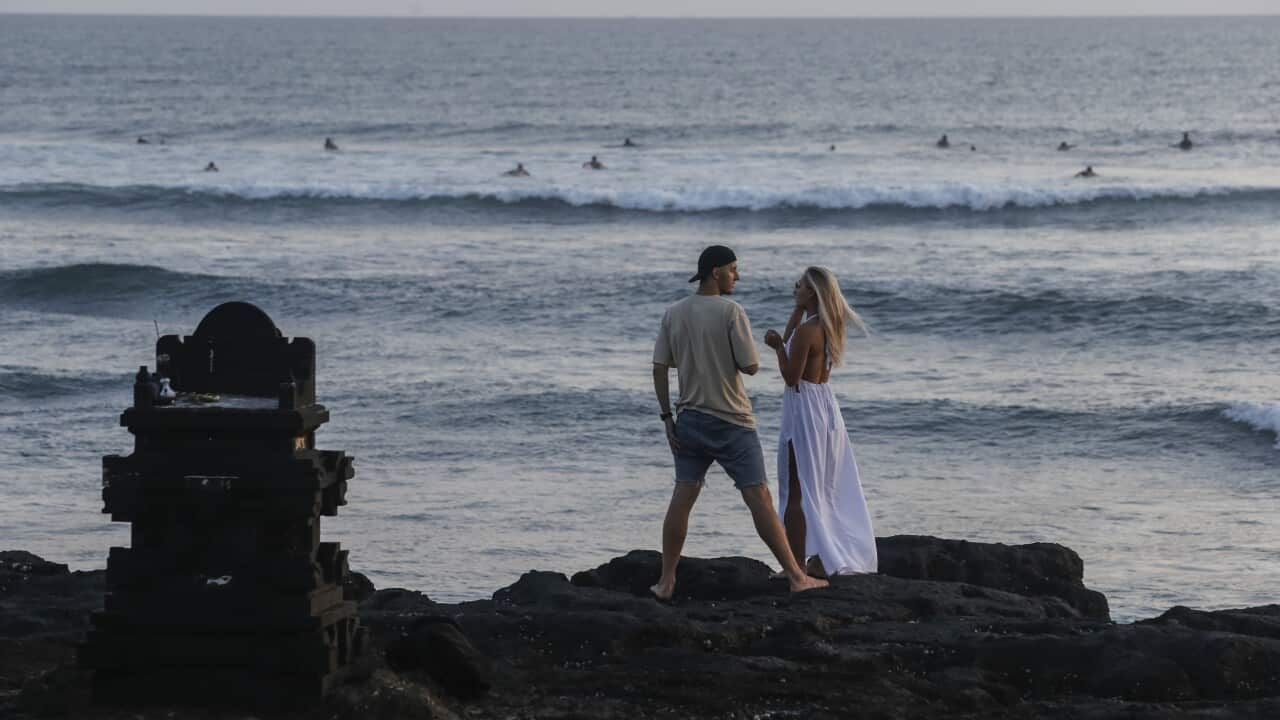TRANSCRIPT
"So I'm here at the Red Cross Field Hospital in Rafah. I'm in our resuscitation area."
For the past five weeks, Australian nurse Jean-Philippe Miller has been working in southern Gaza.
"We've got our blood now so we can transfuse our patient. She's the young lady who's suffered a gunshot wound to her flank. She had damage to her spleen. She had damage to her lung collapsed and and blood in there.
"So we had to put a chest drain in - and drain out some of that blood. She remains with a high respiratory rate and high heart rate. It will give her this blood now. And it will help her stabilise her."
An emergency nurse originally from Melbourne, Jean-Phillipe has spent the last decade deploying with the Red Cross to South Sudan, Myanmar, Bangladesh and Syria - now on his fourth rotation in Gaza.
"The hardest thing, the most distressing thing is seeing children who are injured. We've had children with gunshot wounds, with shrapnel injuries, with blast injuries. The children who have lost their parents. They're calling out for their their dead parents in our hospital. And you see how traumatised they are.
"This is a hospital project in an active conflict zone we're a weapon-wounded hospital. We're seeing significant injuries here and yeah, I mean, it's confronting work."
The Red Cross Field Hospital in Rafah opened in May last year.
It was intended as a temporary facility, but is now one of the last fully functioning hospitals in Gaza.
"It is is a hospital made of tents. We have seven wards. We have up to 100 patients. We were 110 when I first arrived. It's kind of a pre-packaged hospital that is normally designed to only operate for several months."
The hospital is two kilometres from a Gaza Humanitarian Foundation aid site.
And since it opened in May, the Red Cross has reported a surge in mass casualty incidents, saying 11 of 13 were linked to the aid distribution site.
Medics say more than a third of patients were under 18.
And nearly half were women.
Jean Phillipe says he's attended mass casualty incidents of around 30 to 50 patients, but says his national colleagues have seen much larger events in the last few months.
"The largest one was around 245 casualties arriving within a few hours. So it's near impossible to comprehend the chaos and the difficulty that that would be to treat all those patients.
"Overall, as a whole, that the hospital has treated over 4,500 weapon wounded individuals; and logged 300 deaths of people that have been trying to access food."
The hospital also constantly takes blood donations, often from the relatives of those injured, to provide lifesaving transfusions.
Like every other medical facility in Gaza, the hospital operates with limited supplies.
Jean Phillipe explaining that the Red Cross provides colour-coded kits for first responders.
"So you've got red for critical patients, those with life-threatening injuries. Yellow for acute patients, green for the walking wounded, black for patients that have arrived deceased, and then you've got blue for those patients that have suffered unsurvivable injuries. And then it is more of a matter of making them comfortable and allowing them to die with some dignity."
Israel's military offensive in Gaza City in the north is driving tens of thousands of Palestinians south.
"There's a lot of desperation. There's people who are trying to find places to evacuate to - and they're unable to. There's people ... we've got staff members who they can't evacuate their families because they've got elderly parents. There's also costs involved with evacuations that people can't afford. So no doubt there are kind of more tents springing up around us in the south."
Evacuations exacerbating existing challenges including access to food.
"Unfortunately, we are seeing more and more patients arrive to the hospital with signs of malnourishment. And this is really worrying for us because it delays recovery and increases risks of complications for these patients."
Jean Phillipe says the circumference of patients' upper arms are measured - to assess the severity of malnutrition.
"The challenges here in Gaza really comes down to food scarcity to high market prices and to the lack of availability of nutritional supplementation."
At the hospital, meals are donated.
"Patient and staff are getting their meals. This is what we have, a huge portion of rice. So patients and staff can come and collect it. And this is kindly donated to us from the World Central Kitchen."
There are also constant reminders of the surrounding war zone.
"That's our bell for the safe room, so we're going to lie flat and wait it out. There was just some shooting nearby so."
More than 500 aid workers have been killed in Gaza since October 2023, according to the UN.
Australian Red Cross CEO Andrew Colvin says 67 are Red Cross and Red Crescent staff.
"That is 67 deaths that didn't need to happen. That's 67 lives of volunteers who are putting themselves in the face of danger to help others. These people are not dispensable. We can't just look at this as a cost of conflict."
Despite the daily trauma, Jean-Philppe says there are also reminders of resilience.
A father surviving critical injuries to meet his newborn son.
"Overnight something quite miraculous has happened. His pregnant wife gave birth to a baby boy just 20 metres away in our maternity department. It is a moment that - despite all the pain and suffering that we do see here in Gaza, there are some moments of hope and joy."
The local carpenter Mohammed makes toys for the children and crutches for the injured.
"At peak times, he's been making about 16 pairs of these crutches per week. These are incredibly important in order to get our patients rehabilitated and back up on their feet."
Reflecting on his time in Gaza, Jean Phillipe says he wants people back home to see the human side of the conflict.
"I think it is very easy for us to kind of get lost in the numbers. Really, the people here are ordinary people in in extremely extraordinarily difficult circumstances.
"And these are people that had hopes and dreams, and they had jobs, and they had families. And I mean these people have lost everything. Like they've lost their homes, they've lost their loved ones.
"Every day at the hospital, I hear about a colleague that's lost someone. And they're all they're all being displaced. They're living in tents. They don't have electricity. It's a daily challenge of just trying to get fresh water or food - or maintain hygiene. It's a nightmare for them. What their dream is a life without war, safety for their children to live with dignity, to live normal lives."


